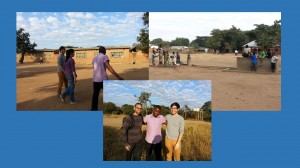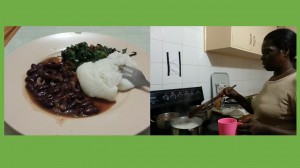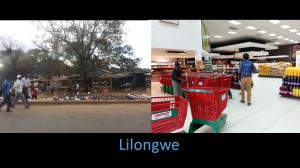It always feels rather fantastical popping into a new society and proceeding about as a silent observer, unfamiliar to the rhythm of daily life. However, I can finally say that I’m beginning to grow more comfortable in life here at Namitondo and St. Gabriel’s Hospital. While there are many factors responsible for this transition from dissonance to soothing purpose, including survival knowledge and routine, the most important is the budding awareness I’ve gained regarding my locale. It takes a lifetime to truly understand a place and its people; however, I hope you enjoy some snippets of observation.
Initial Observations/Thoughts in Malawi
Having the opportunity to stay in a rural area, about one hour away from the capital, Lilongwe, has been a particular blessing. Though our guest house provides the full array of western accommodations, its setting at the junction of villages allows for a closer appreciation for the lives of nearly 80% of Malawians who live in rural areas. Moreover, getting to see how health care is orchestrated at such great distances within a low-resource setting will bring with it many lessons/understandings. We will be accompanying the under-five outreach team tomorrow!
One of the highlights thus far has been the tour of the Namitete area given by Aaron, a local baker who took the initiative to welcome us and show us around his home. He pointed out the nearby primary and secondary school, various shops of interest as well as the local football pitch (and basketball court), to name a few. Though visiting the places was fun, just being able to talk to him and learn about how the education system worked, hearings his likes/dislikes, especially related to the FIFA World Cup, and seeing “places” with his added perspective really added to the exploration. We even got invited to watch a community football match amongst two teams!
Though basic, just engaging in novelty, has been truly memorable. One’s first always holds a special place. Likewise, I’ll always remember the first smile as I traveled on a bike taxi, the incessant yells of “Azungu!” (foreigner/white person) from largely innocent attempts for attention, my first taste of Nsima (thick corn flour based porridge) served with delicious locally-grown leafy greens in ndiwo (tomato-onion sauce) and sauced kidney beans – graciously provided by Anne, a community health worker living with us at the Zitha House, etc. These new experiences also extend to the hospital and I plan on sharing these observations very soon!
Unfortunately, amongst such novelty, budding relationships and learning, comes the very real economic inequality and social injustice evident in Malawi. Academically, I expected poverty, as Malawi ranks 170 out 186 countries in the Human Development Index and has greater than 40% of its population living on less than a $1/day; however, when confronted with it first-hand on a daily basis the effect is entirely different. Moreover, my greatest surprise came in the close proximity of wealth and poverty. In Lilongwe, there were enclaves of riches, in the form of superstores in the Game Shopping Complex where I had to remind myself I wasn’t in the US and then a few kilometers away, there were wooden huts and slums which didn’t even provide for the most basic health/safety needs. Furthermore, despite only working at the hospital a few days, one is surrounded by socioeconomic and political injustices wrapped up as disease and failed/inadequate treatments. This is an overarching influence that pierces everyday life, including the provision of health care. (Note: Check out Joao’s post for another perspective and more details about the dichotomy of life in Malawi)
Closing Remarks
I apologize for the scattered discussion of Malawi above. In future posts, I will focus on individual elements related to healthcare, internship activities, technologies, culture, etc. However, as beginnings are rarely ever clean or organized, it seems only fitting that this post embody such characteristics. Moreover, I really do wish to attach many more pictures, but my 3.75G Airtel Dongle is nowhere near how fast its name suggests. Anyways, thanks for reading and please leave your thoughts! The next post will be about overall health care in Malawi, where St. Gabriel’s fits in and what services the hospital provides.


